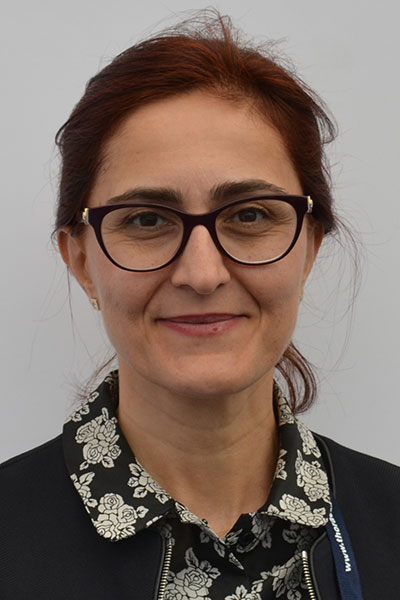The future of lung health around the world is increasingly in the capable hands of local experts, thanks to an American Thoracic Society research initiative that is celebrating its 30th anniversary this year.

The ATS MECOR (Methods in Epidemiologic, Clinical, and Operations Research) Program was founded in 1994 to empower local scientists in low- and middle-income countries to address the burden of respiratory diseases through advanced research methods. To date, more than 2,500 students have participated in countries throughout Latin America, Africa, Asia, and the Mediterranean. Hundreds of faculty members, donors, and members of regional partner associations have helped establish and grow the program’s impact on global respiratory health.
The lasting impact of three decades of the MECOR program was evident throughout programming at the ATS 2024 International Conference in San Diego. ATS President M. Patricia Rivera, MD, ATSF, celebrated the program’s milestone and honored founder Sonia Buist, MD, a former ATS president, during the Opening Ceremony on Saturday, May 18. Ozge Yilmaz, MD, ATSF, a former participant in the MECOR Turkiye program, current course director for the MECOR Global virtual program, and incoming MECOR Steering Committee chair, and other presenters discussed elements of the program’s mutually beneficial mentor-mentee relationships during a session at the conference’s International Participants Center on Sunday, May 19. Multiple other events provided an opportunity for the extended MECOR community to reflect and reconnect.
Year after year, MECOR participants emerge from the program ready to engage in high-quality research and policy work that tangibly improves lung health not only at home, but worldwide. The program has facilitated valuable connections between fellow participants, faculty mentors, and the global health care community. In turn, program alumni have laid the groundwork for the next generation of scientists from regions with expansive needs but limited research capacity.
“As we like to say during the presentations we do at the courses, ‘MECOR changed my life,’” said Dr. Yilmaz. “I was always interested in doing research and MECOR provided me with the basic information I needed to build on. I learned about scientific research and trained many people in my own institution. Moreover, we developed similar courses in the Turkish Thoracic Society, in Turkish — to train people interested in research but without the English language skills to take MECOR.”
The three-level MECOR curriculum, now held in each of six host regions — Latin America, Africa, China, India, Southeast Asia, and Turkey — begins with an intensive, weeklong active-learning experience that involves onsite instruction in the basics of the clinical research process. Through a hybrid model of dynamic in-person and online learning, mentors guide students through advanced research methods, the creation of research manuscripts relevant to the real-world needs of their local communities, and submissions of grant proposals to fund further research over two years.
“The mentoring relationship between the faculty and students, as well as the peer mentoring between the students, supports these researchers not only during the course but throughout their lives,” Dr. Yilmaz said.
To learn more about MECOR and its regional and remote courses, or to donate to support the next stages of its ongoing mission, visit the program’s homepage at thoracic.org.
Don’t Miss ATS 2024 Highlights: On Demand
Don’t forget that ATS 2024 Highlights: On Demand are available to all conference registrants! On Demand will give you access to the Opening Ceremony, Plenary Session, Keynote Series, Clinical Year in Review, Adult Clinical Core Curriculum, and so much more. The topics will cover ILD, asthma, health equity, and CF, to name just a few. On Demand content will be accessible to all ATS 2024 full conference and On Demand registrants until March 2025.
